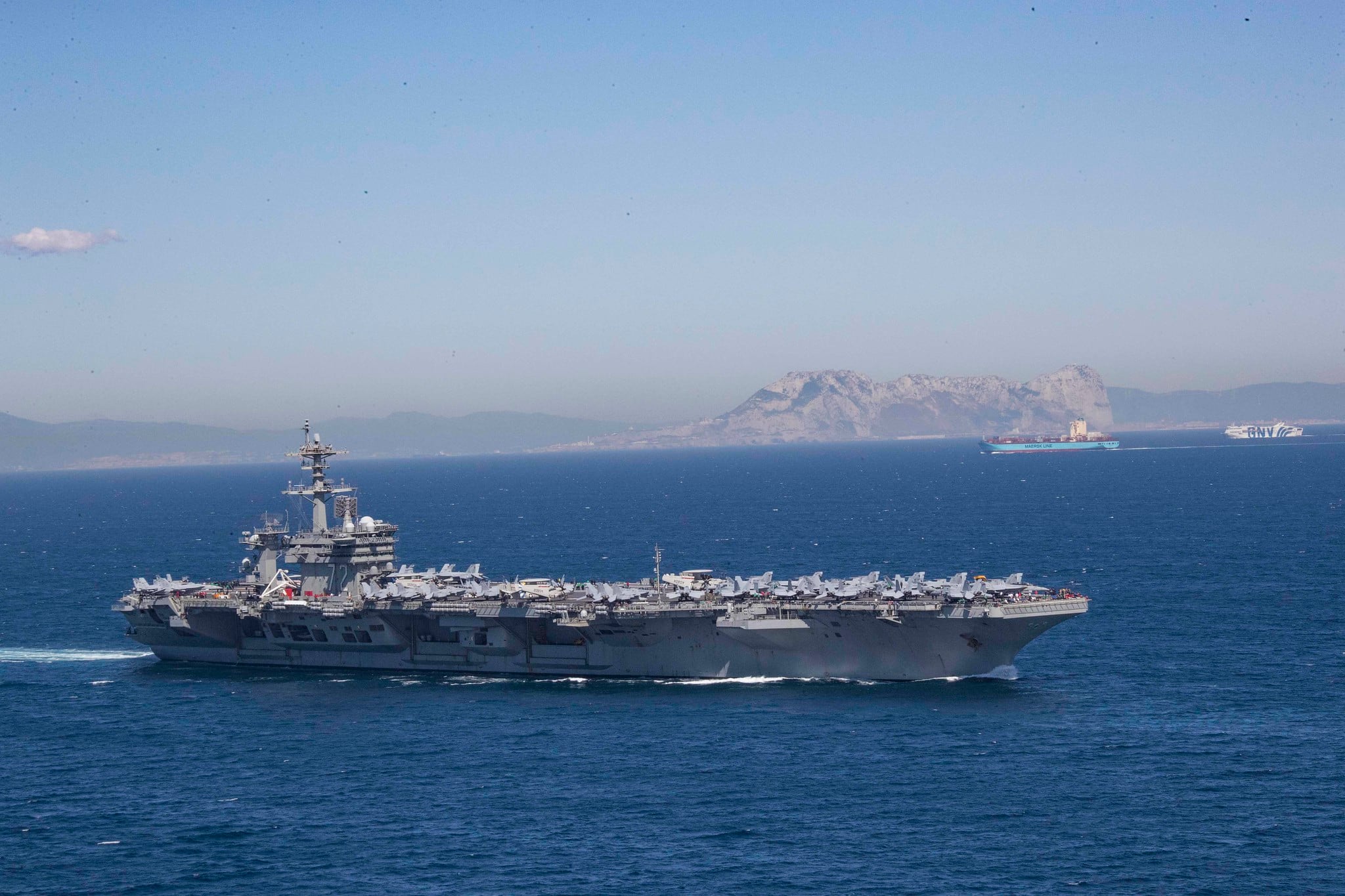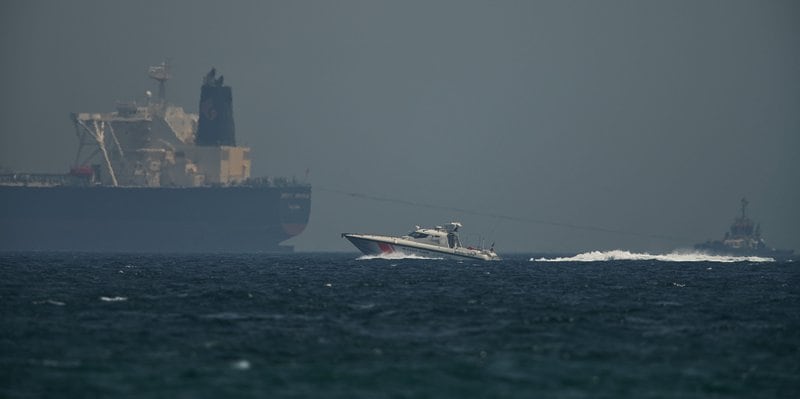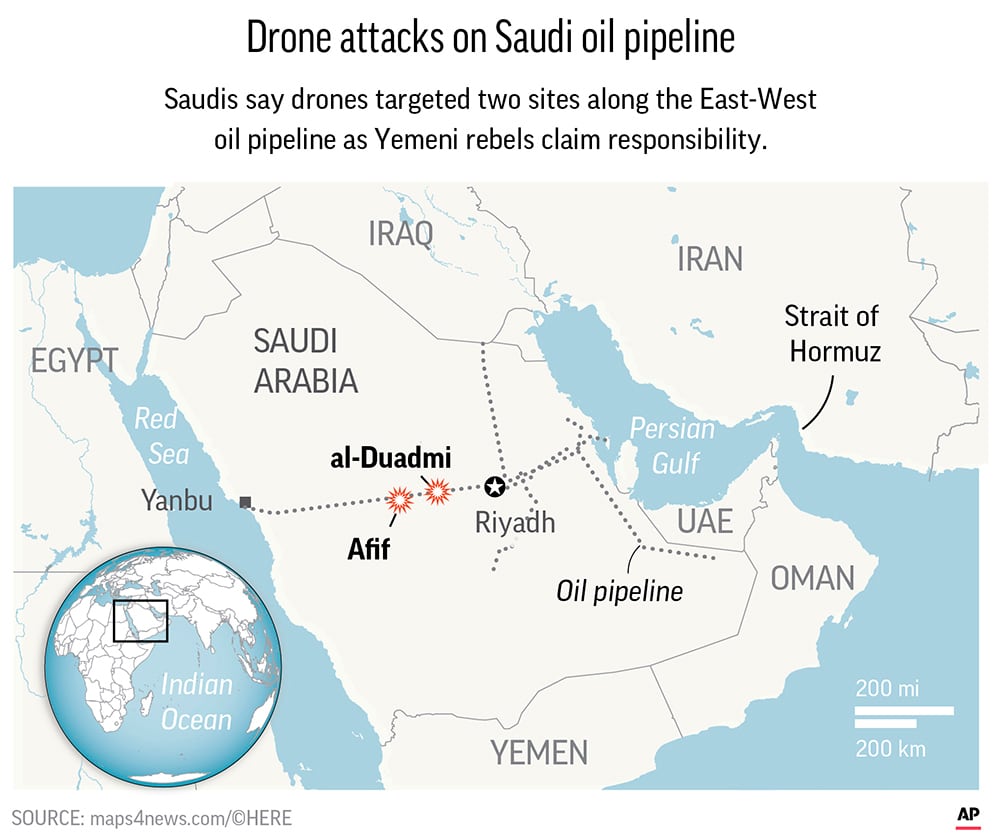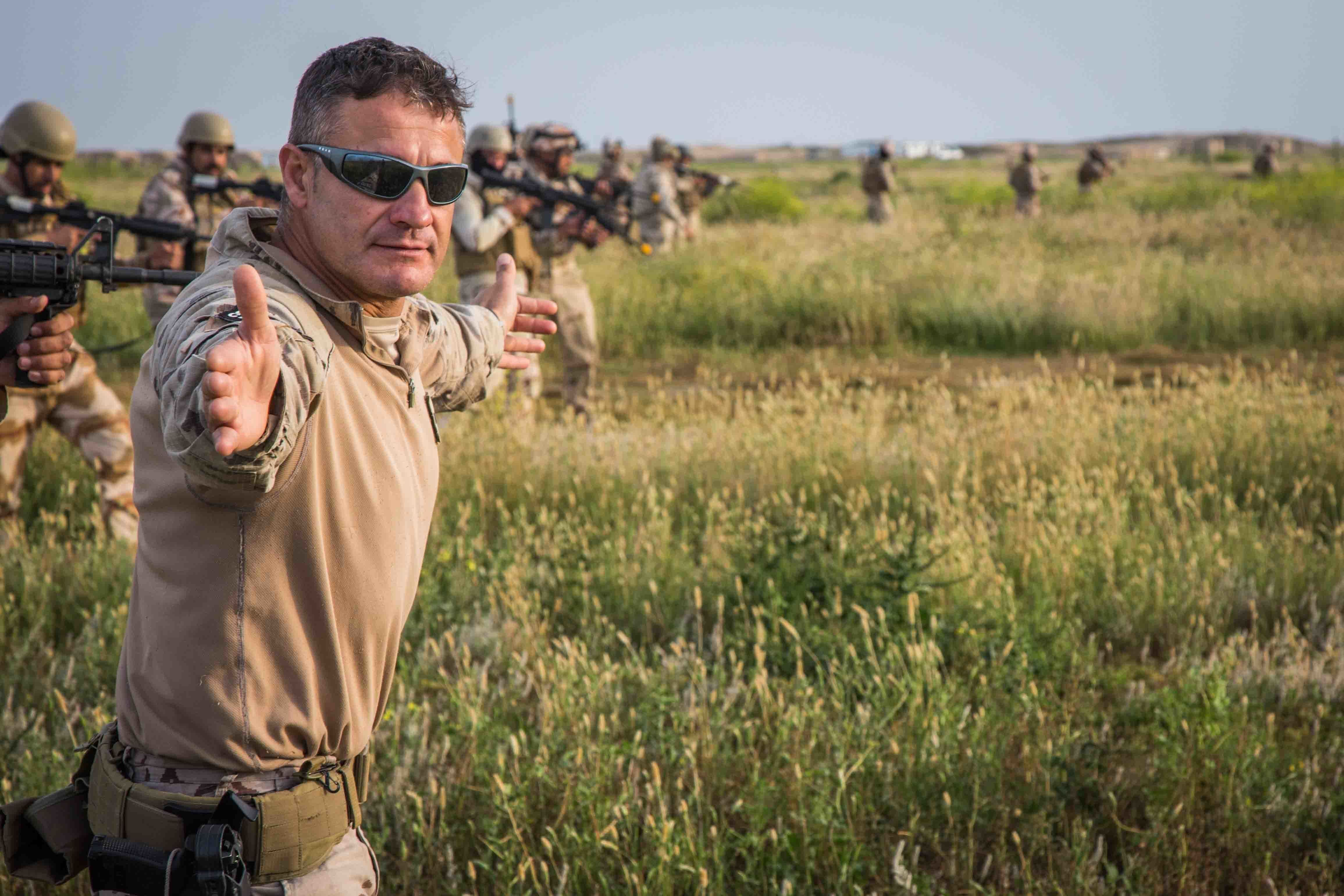DUBAI, United Arab Emirates — Saudi Arabia accused Tehran of being behind a drone strike that shut down a key oil pipeline in the kingdom, and a newspaper close to the palace called for Washington to launch “surgical” strikes on Iran, raising the specter of escalating tensions as the U.S. boosts its military presence in the Persian Gulf.
Concerns about possible conflict have flared after the U.S. dispatched warships and bombers to the region to counter an alleged but unspecified threat from Iran. There also have been allegations that four oil tankers were sabotaged Sunday off the coast of the United Arab Emirates, and Iran-aligned rebels in Yemen claimed responsibility for Tuesday’s attack on the Saudi pipeline.
RELATED

The fears have grown out of President Donald Trump's decision last year to withdraw the U.S. from the 2015 nuclear accord between Iran and world powers and impose wide-reaching sanctions — the latest levied as recently as last week — that have crippled Iran's economy.
Saudi Prince Khalid bin Salman, who is King Salman's son and the country's deputy defense minister, tweeted that the drone attack on two Saudi Aramco pumping stations running along the East-West pipeline were "ordered by the regime in Tehran, and carried out by the Houthis" — a reference to the Yemeni rebel group.
A state-aligned Saudi newspaper went further, running an editorial calling for "surgical" U.S. strikes on Iran in retaliation. Iran has been accused by the U.S. and the U.N. of supplying ballistic missile technology and arms to the Houthis, which Tehran denies.
The front-page editorial in the Arab News, published in English, said it's "clear that (U.S.) sanctions are not sending the right message" and that "they must be hit hard," without elaborating on specific targets. It said the Trump administration had already set a precedent with airstrikes in Syria, when the government there was suspected of using chemical weapons.
RELATED

Ali Shihabi, who runs the Saudi-leaning Arabia Foundation in Washington, said there's a sense that if the Iranians can get away with targeting Saudi oil infrastructure, then "the whole security infrastructure in the Gulf will be called into question and security premiums on oil will rise."
He said it would seem that Riyadh would like to coordinate with Washington how it responds to Iran, but "eventually what may happen is that just Saudi Arabia and the UAE may have to do something."
"Nobody is going to start a war with them (Iran), but I think they should be defanged and, you know, things like their naval capabilities, things like their missile capabilities should be downgraded at least to make their capacity to inflict such dangerous activity more painful, more costly," Shihabi said.
Saudi Crown Prince Mohammed bin Salman, who also is defense minister and controls major levers of power in the Sunni kingdom, has not commented publicly on this week's incidents. In a Saudi TV interview in 2017, he said the kingdom knows it is a main target of Shiite Iran and there is no room for dialogue with Tehran.
A top Emirati diplomat said late Wednesday the Saudi-led coalition fighting the Houthis in Yemen would "retaliate hard" for attacks on civilian targets, without elaborating.

However, Anwar Gargash also said the UAE is "very committed to de-escalation" after the alleged sabotage of the tankers off the country's coast. He declined to blame Iran directly, although he repeatedly criticized Tehran.
In response to the oil pipeline attack, the coalition said it launched airstrikes on Houthi targets in the rebel-held capital, Sanaa, killing at least six people, including four children. At least 40 other people were wounded, according to Yemen's Health Ministry.
Residents of Sanaa scrambled to pull wounded people from the rubble of a building hit by the airstrikes. Fawaz Ahmed told The Associated Press he saw three bodies — a man, a woman and a child, all buried together.
The coalition, which includes the UAE, has been at war with the Houthis since 2015, carrying out near-daily airstrikes. The pipeline attack marked one of the rebels' deepest and most significant drone strikes inside Saudi territory since the conflict began.
Washington already has warned shipping companies that "Iran or its proxies" could be targeting maritime traffic in the Persian Gulf region and said it deployed an aircraft carrier strike group and B-52 bombers there to counter the threat.
Last week, U.S. officials said they had detected signs of Iranian preparations for potential attacks on U.S. forces and interests in the Middle East but did not provide any evidence to back up the claims.
The U.S. State Department has ordered all nonessential government staff to leave its embassy and consulate in Iraq. Germany and the Netherlands both suspended their military assistance programs in the country in the latest sign of tensions.
Iraq is home to powerful pro-Iranian militias, while also hosting more than 5,000 U.S. troops. The U.S. military's Central Command said its troops were on high alert, without elaborating.
European nations have urged the U.S. and Iran to show restraint. Also, a senior British officer in the U.S.-backed coalition fighting the Islamic State group, Maj. Gen. Chris Ghika, said earlier this week that there had been no increased threat from Iranian-backed forces in Iraq and Syria. His comments exposed international skepticism over the U.S. military buildup.
RELATED

Iranian Foreign Minister Mohammad Javad Zarif said during a visit to Tokyo that Iran has the right to respond to the "unacceptable" U.S. sanctions, but has exercised "maximum restraint."
Speaking about Iran's nuclear deal with world powers, Zarif was quoted as also saying: "A multilateral deal cannot be treated unilaterally."
Iran recently said it would resume enriching uranium at higher levels if a new nuclear deal is not reached by July 7. That would potentially bring it closer to being able to develop a nuclear weapon, something Iran insists it has never sought.
Associated Press writers Ahmed Al-Haj in Sanaa, Yemen, Jon Gambrell in Dubai and Mari Yamaguchi in Tokyo contributed.





